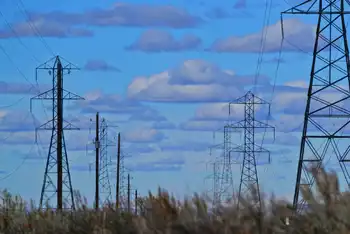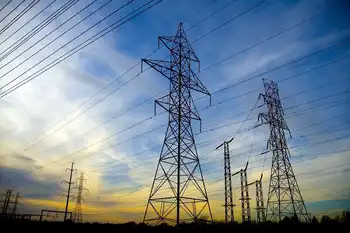Give the green light to electric cars
By Calgary Herald
High Voltage Maintenance Training Online
Our customized live online or in‑person group training can be delivered to your staff at your location.

- Live Online
- 12 hours Instructor-led
- Group Training Available
Even in Calgary? It is certainly an idea that should be considered.
Presumably, low-speed vehicles will add to the base load through timed circuits and smart chargers, to take advantage of low overnight electricity rates. Thus, they would draw on the major energy source in each province. In Ontario that would be nuclear, and in B.C., Quebec and Manitoba, hydro power.
That the electric runabout charging up overnight in Vancouver does so on CO2-free hydro power, makes it truly a pollution-free car.
Here in Alberta, however, about 60 per cent of the province's electricity is generated by coal-fired plants. The balance comes mainly from plants running on natural gas, fired up as needed. Both generate carbon dioxide. That means the overnight charge in Alberta would likely draw on coal-fired, base-load power.
However, the perfect should not be the enemy of the good. Coal-fired generation may not be as clean as the hydroelectric kind, but energy economists at Enmax showed us the mathematics. The good news is that it looks as though it's still a gain for the atmosphere when cars run on electricity generated by coal, instead of on gasoline. Their conclusion: "Even if you use nothing but older coal generators to charge your car's batteries, you will save 36 per cent over the emissions of a normal car."
To be sure, low-speed vehicles are not for everybody. For one thing, they're slow: As they do not have to meet the same safety requirements as larger, heavier automobiles, Transport Canada insists on a maximum speed of 40 km/h. Range is also restricted.
Still, there's probably plenty of use for them, for short distances running around within Calgary's communities.
And, even people entirely lacking in green sentiment might appreciate this further reflection from Enmax: "If we assume that gasoline is $1.17 per litre and that electricity is about $0.10 per kW-h, then it costs most of us $0.11 to travel one kilometre in our cars. An electric car at 100 W-h per km would cost us just $0.01 to travel the same kilometre." That's almost cheaper than walking.
There's no single cure for North America's oil addiction. Where electric cars are part of the solution, they should by all means be used, but to get the best from them here in Alberta still means solving the problem of green generation.
Meanwhile, Vancouver — along with the Vancouver Island city of Oak Bay — are to be commended for a far-sighted decision. It is certainly time for a similar discussion in our municipal chambers.











